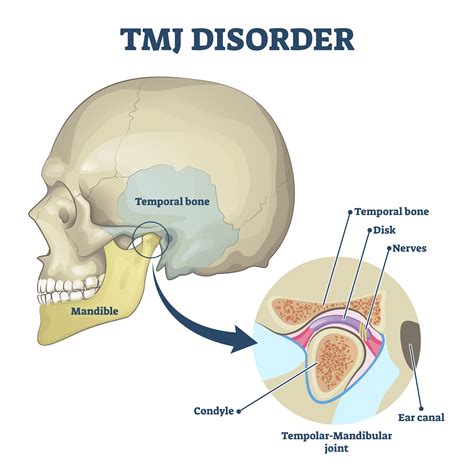TMJ: From Pain to Comfort, How Long?
Temporomandibular joint (TMJ) disorders affect the jaw joint and the muscles controlling chewing. Experiencing TMJ pain can be incredibly frustrating, with the duration of discomfort varying widely depending on several factors. This article explores the timeline of TMJ pain relief, addressing common questions and offering insights into managing this condition.
What Causes TMJ Pain, and How Long Does it Last?
TMJ pain's duration isn't uniform. It can range from a few days of mild discomfort to chronic, persistent pain lasting months or even years. Several factors influence the length of recovery:
- Severity of the condition: Mild TMJ disorders often resolve more quickly than severe cases involving significant joint damage or displacement.
- Underlying cause: The root cause plays a crucial role. Bruxism (teeth grinding), arthritis, injury, or even stress can all contribute, with each requiring different approaches to treatment and impacting recovery time.
- Treatment adherence: Following your doctor's recommendations diligently, including prescribed therapies and lifestyle changes, significantly influences recovery speed.
- Individual factors: Each person’s healing process is unique, impacted by factors like overall health, genetics, and stress levels.
How Long Does it Take for TMJ Treatment to Work?
The effectiveness of TMJ treatment and its timeline vary based on the treatment modality:
-
Conservative treatments: These include pain relievers (like ibuprofen or acetaminophen), muscle relaxants, ice/heat packs, and lifestyle modifications (avoiding jaw-clenching activities). These often offer some relief within days to weeks, but may not fully resolve the underlying issue.
-
Physical therapy: This focuses on strengthening jaw muscles and improving joint mobility. Results often become noticeable after several sessions, but consistent therapy over several weeks or months may be required for substantial improvement.
-
Splints or mouthguards: These devices reposition the jaw, reducing strain on the joint. Relief can be felt within days or weeks, though the splint itself might need to be worn for months or even longer.
-
Injections: Corticosteroid injections can provide quick pain relief, lasting for several weeks or months. However, they are not a long-term solution.
-
Surgery: Surgical intervention is reserved for severe, intractable cases and is only considered when other treatments have failed. Recovery from TMJ surgery is a lengthy process, often requiring months or even years for a full return to function.
Can TMJ Pain Go Away on Its Own?
In some cases, mild TMJ pain may resolve on its own with rest and self-care. However, this isn't guaranteed. Ignoring TMJ pain can lead to worsening symptoms and potentially chronic issues. Seeking professional evaluation is crucial to determine the cause and receive appropriate treatment, preventing the condition from becoming long-term.
What are the Long-Term Effects of Untreated TMJ?
Prolonged untreated TMJ can lead to several problems:
- Chronic pain: Persistent pain can significantly impact quality of life, leading to sleep disturbances, difficulty eating, and emotional distress.
- Joint damage: Continued strain on the joint can result in osteoarthritis, joint degeneration, and permanent dysfunction.
- Headaches: TMJ disorders often lead to tension headaches and migraines.
- Earaches and hearing problems: Pain can radiate to the ear, potentially affecting hearing.
- Dental problems: Bruxism, often associated with TMJ, can damage teeth.
How Can I Speed Up TMJ Recovery?
While recovery time varies, you can take steps to optimize your healing:
- Follow your doctor's recommendations: Adherence to treatment plans is vital.
- Practice stress management techniques: Stress significantly exacerbates TMJ pain. Techniques like yoga, meditation, or deep breathing can be beneficial.
- Maintain a healthy lifestyle: A balanced diet, regular exercise, and sufficient sleep support overall health and healing.
- Avoid jaw-clenching activities: Be mindful of habits like gum chewing, nail biting, and pencil chewing.
When Should I See a Doctor for TMJ Pain?
Consult a doctor if your TMJ pain:
- Is severe or persistent
- Interferes with daily activities
- Is accompanied by other symptoms (e.g., headaches, earaches)
- Doesn't improve after a week of self-care.
The journey from TMJ pain to comfort is unique for every individual. Open communication with your doctor, adherence to treatment, and a proactive approach to self-care are vital for managing this condition and achieving long-term relief. Remember, early intervention is key to preventing chronic pain and long-term complications.

